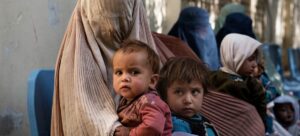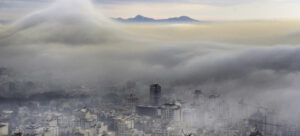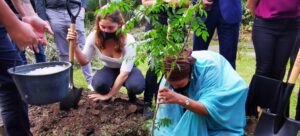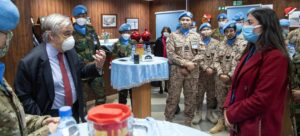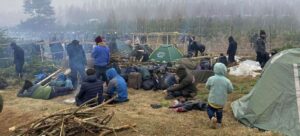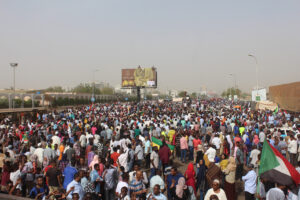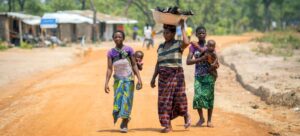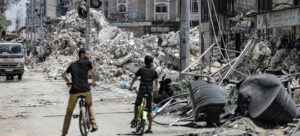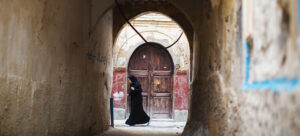“All government institutions are measured on results: social protection, access to electricity and water, education and basic healthcare, good governance and the protection of human rights”, said Secretary-General António Guterres.
‘Critical role’
Speaking at a press conference marking the end of his three-day mission of solidarity, he said that if the country was to return to a path of sustainable recovery, “civil society, women and young people have a critical role to play.”
“Their voices must be heard, and their proposals seriously considered”, he said.
“Free and fair parliamentary elections, held on time in 2022, will be an essential opportunity for the people to make their voices heard.”
Mr. Guterres said he was grateful for having been able to engage with a wide range of Lebanese society, including political and military authorities, and religious leaders.
He also undertook field trips to both the north and south of the country and told reporters it had been “an honour” to be back in a country, dear to his heart.
“But it grieves me to see the people of this beautiful country suffering so much. The people of Lebanon face immense challenges”, he said. “Yet, despite the strains they endure, the warmth and generosity of the Lebanese people continues to shine.”
He said region and the whole world, were thankful for the country’s generosity in giving refuge to Syrians and others, fleeing violent conflict, and commended the country’s “spirit of co-existence and tolerance”.
Accountability
Once again, the Secretary-General stressed the importance of accountability for the deadly blasts at the Port of Beirut in August 2020, which destroyed swathes of the city centre.
Referring to his visit there on a rain-sodden Monday, he expressed deep sympathy for the victims of the devastating explosion that killed more than 200 people — parents, daughters, sons, friends and colleagues from more than 12 countries.
“The United Nations mourns with you,” said the Secretary-General, noting that two children of United Nations staff members were among the younger victims.
“The Lebanese people and the families of the victims deserve answers, so justice that can only be met through impartial, thorough and transparent investigation,” he said, adding that people expect their political leaders to listen to their needs and improve the economy, including through effective government and state institutions, and by effectively fighting corruption.

UN Photo/Eskinder Debebe
UN Secretary-General António Guterres at the press conference with the media in Lebanon.
Blue Line
On Monday, the Secretary-General visited Tripoli in northern Lebanon. On Tuesday, he headed to the southern city of Tyre, telling UN News and other journalists, that he was deeply moved to hear first-hand testimony about the repercussions of the multi-faceted crisis afflicting the nation, on people’s daily lives.
While in the south, the Secretary-General also visited the Blue Line, which runs from Ras al-Naqoura on the Mediterranean Sea through the Syrian-Lebanese-Israeli border line on the Hasbani River, to Mount Hermon or Jabal al-Sheikh.
Around 50 per cent of the 120 kilometer blue line is disputed.
He heard a briefing from the head of UNIFIL’s mission and Force Commander, Major General Stefano del Col, on the challenges and opportunities along this line and the tripartite meetings between the Lebanese and Israeli armies under UNIFIL’s auspices.
“The rockets fired from Lebanese territory and the responses from Israel earlier this year are reminders of the dangers to international peace and security”, noted Mr. Guterres, saying a “miscalculation or misunderstanding could have profound consequences.”
He emphasized in this regard the need for UNIFIL for a “full and unimpeded access throughout its area of operations.”
Women and youth
At UNIFIL headquarters, Mr. Guterres met young peacekeepers working under the UNIFIL banner and was pleased to see a good proportion of women among the ‘blue helmets’. He said that one of his objectives was to ensure that in time, the UN would reach full gender parity.
In a chat with young UNIFIL soldiers, Mr. Guterres asked Kumutha Vijayan, an officer at the Malaysian battalion about her experience with UNIFIL and her engagement with the people in Southern Lebanon.
Officer Vijayan said that she had participated in some training programs on how to engage with the local population, noting that they treat her well and accept her work within the mission.
Asked if she felt they trusted her more because she was a woman, she said, “indeed.”
In this regard, the Secretary-General expressed his deep belief that “women make a very important contribution to our forces. When they have to deal with communities, for example, it is usually easier for women to gain the community’s trust more quickly than men, especially when engaging with women and children.”
Aya Farhat, a field language assistant and UNIFIL’s youngest civilian employee, joined the mission in 2019.
In a conversation with the Secretary-General, she explained what she does, saying her work entailed helping UNIFIL forces in communicating with the Lebanese Army and the community.
“I think communication is very important, and the fact that we deliver the message is very important. It’s a very important part of peacekeeping operations to be able to connect ideas and eventually agree on something.”
Asked how she say the situation faced by locals while touring with the mission’s soldiers, Aya said that the situation was not pleasant, especially after the Covid pandemic, which weighed heavily on most of the population, in addition to the multiple crises in Lebanon, that made it even worse.

UN Photo/Eskinder Debebe
UN Secretary-General António Guterres with Qasem Istanbuli, head of Sur Association for Arts.
Afraid of art?
Lebanon has a vibrant and diverse civil society, with more than 10,000 organisations registered with the Ministry of Interior and municipalities, working on a wide range of issues, in various humanitarian and development fields.
Cultural development has passed through many phases, and recent events such as the Syria crisis next door, the port explosion, and socio-economic meltdown of the nation amid political gridlock, have signalled the beginning of a new phase in the development of Lebanese civil society.
On the last full day of his visit to Lebanon, the Secretary-General met with a group of civil society activists and members of humanitarian organizations, including Kassem Istanbouli, President of the Tyre Art Society.
Mr. Istanbuli called for supporting the cultural sector and its development, to bring about social change, as this is already leading to political change.
“The corrupt authority in Lebanon, which for 30 years has been stealing all the country’s wealth, is afraid of art, because art is what brings people together,” he said, noting the importance of creating a cultural revolution that confronts corruption and makes a difference.
“We are doomed to hope, and we hold on to love,” Kassem said despite his pain, “nothing can bring us together but the arts and sports, this human language that we need to revive.”
A UN for the people
Kassem called on international institutions, including the United Nations, to support the arts so the Lebanese people can create a cultural balance in their country.
Activist Mr Istanbuli, presented Mr. Guterres with an old poster of an Egyptian movie dating from the 1960s, that was screened then by a popular cinema in Tripoli – Lebanon’s oldest cinema – noting that this venerable institution has now become a space where the country’s internal quarrels play out.
Mr. Istanbuli said the poster was very dear to his heart because it is a memory – the memory of the arts and the cultural heritage that must be protected.
Listening to the civil society representatives, the Secretary-General expressed his great admiration for all those who spoke at this meeting, saying that their testimony gives a clear picture of the suffering of the Lebanese people, including examples presented today of children dropping out of school, their yearning to leave their homeland, the confusion of parents about what to do to protect their children in the current situation, as well as the lack of commitment by those in power, to take care of their own citizens.
Mr. Guterres stressed that the United Nations has no political agenda in Lebanon, “our only agenda is to support the Lebanese people”.
In charting a path towards sustainable recovery, civil society, women and young people have a critical role to play, he said.
“Their voices must be heard and their proposals seriously considered.”
